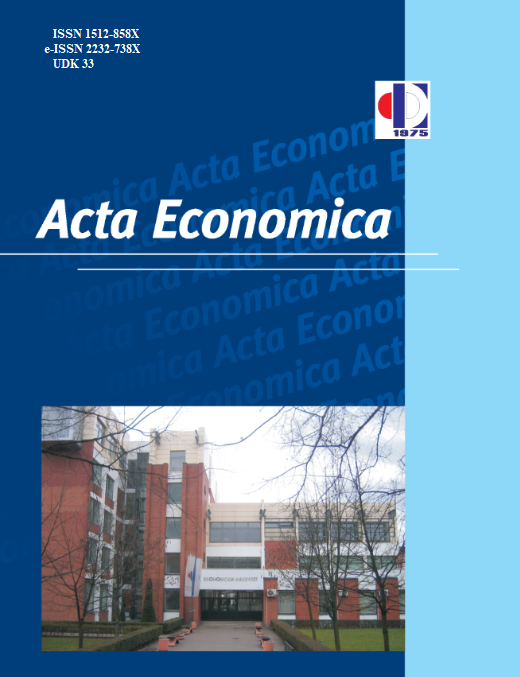Могући правци развоја монетарне политике БиХ у циљу подстицања економског раста // Possible tendencies of BiH monetary policy in encouraging the economic growth
DOI:
https://doi.org/10.7251/ACE1420213TAbstract
Резиме: Осигурати раст националне економије, уз истовремену унутрашњу и спољну стабилност цијена, поставља се као примарни задатак економске политике. Избор валутног одбора као модела управљања монетарном политиком обезбјеђује раст повјерења у домаћу валуту, макроекономску стабилност и јачање кредибилитета централне банке, посебно у земљама транзиционих и реформских процеса. Полазећи од ограничења овог модела монетарне политике, питања домаће конкурентности и контроле биланса текућег рачуна постају све битнија. У условима немогућности интервенције монетарне политике штетне посљедице на извоз и економски раст земље несумњиво показују да класични монетарни одбор представља погодно средство монетарне стабилизације, али не и механизам динамизирања привредног раста. Рад се фокусира на избор облика монетарне политике која би у датим условима могла да обезбиједи највећи допринос расту и привредном опоравку. Циљ рада је указати на могуће модификације постојећег система монетарног одбора у Босни и Херцеговини, анализом савремених валутних одбора и искустава земаља чланица које су примјењивале овај режим прије приступања Европској (монетарној) унији. Резултати истраживања потврђују низ предности које монетарни одбор пружа малим и отвореним економијама, али истичу и недостатке који доводе у питање одрживост овог аранжмана монетарне политике и воде модификацији постојећег модела валутног одбора, што би проширило дјеловање Централне банке Босне и Херцеговине.
Summary: To ensure the growth of the national economy with simultaneous internal and external price stability is set as the primary goal of economic policy. Choosing the currency board as a model of monetary policy provides increased confidence in the local currency, macroeconomic stability and strength of the central bank credibility, especially in development countries. Considering the constraints of the currency board, national competitiveness and control of the current account balance are becoming very significant questions. In terms of the inability of monetary policy interventions to effect on exports and economic growth of the country, undoubtedly show that classical monetary board is a convenient measure of monetary stabilization but not the mechanism of intensification of economic growth. This paper focuses on the choice of monetary policy model to the given conditions which could provide the growth and economic recovery. The aim of this paper is to emphasize the possible modification of the existing system of currency board in Bosnia and Herzegovina, by analyzing modern currency boards and experiences of member states that have followed this regime before accession to the European (Monetary) Union. The results confirmed a number of benefits that monetary board provides for a small and open economy, but also point out the shortcomings that stress questions about the sustainability of this arrangement and possible tendencies of modification of existing model of the currency board, primarily with widening the instruments and action of the Central Bank of Bosnia and Herzegovina.

